The Parable of the Two Lost Sons — Luke 15:11-32
Kathleen Rushton highlights the relationships of lostness and being restored in the parable of the two sons in Luke 15:11-32.
Visit this article

Kathleen Rushton highlights the relationships of lostness and being restored in the parable of the two sons in Luke 15:11-32.
Visit this article
Kathleen Rushton highlights significant aspects of the Sermon on the Plain in Luke 6:17-49.
Visit this article
Kathleen Rushton describes how significant words in the Prologue of the Gospel of John (Jn 1:1-18) provide clues for discipleship as faithful participants in God’s unfinished work.
Visit this article
Kathleen Rushton discusses John 18:33-37 in which Jesus contrasts his mission to reveal the true reign of God with the false Roman reign which oppresses the people.
Visit this article
Kathleen Rushton discusses how the “beginnings” in Mark 10 point to Jesus as good news in the Gospel and to the challenges of discipleship.
Visit this article
Kathleen Rushton discusses why Jesus spoke of this death-resurrection in Mark 8:27-35 and 9:30-37.
Visit this article
Kathleen Rushton highlights Mary Magdalene's role in the Gospels and her commission by the Risen Jesus to be the "Apostle to the Apostles".
Visit this article
Kathleen Rushton describes how the story of the Calming of the Storm in Mark 4:35-41 highlights the qualities of discipleship for today.
Visit this article
Kathleen Rushton discusses the many ways the Spirit’s activity is imaged in John’s Gospel.
Visit this article
Kathleen Rushton reflects on the image of the vine and the branches in John 15:1-17.
Visit this article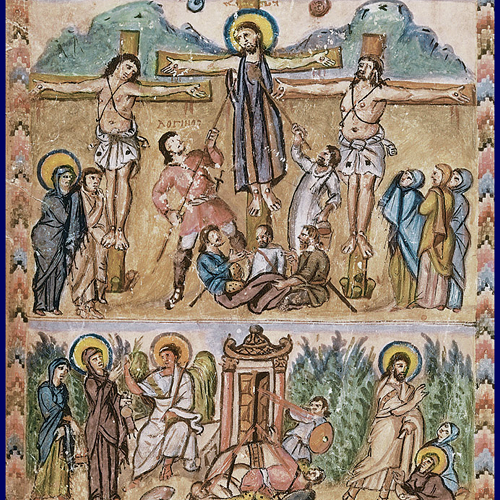
Kathleen Rushton writes that the women and the Beloved Disciple standing at the foot of Jesus’s cross in John 19:25-30 are engaged in resistance to the evil of the Roman Empire.
Visit this article
Kathleen Rushton explains the significance of Jesus going to a quiet place in Mark 1:12-13.
Visit this article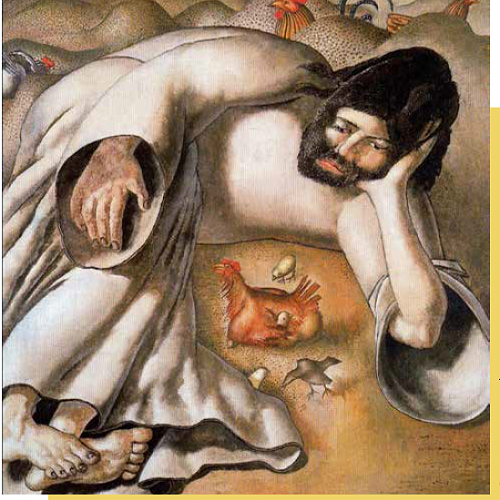
Kathleen Rushton explains how Jesus comes into creation in John 1:1-18 not as a baby, as we read in Matthew and Luke, but as the Word becoming flesh and pitching a tent in us.
Visit this article
Kathleen Rushton comments on the parable Jesus told in Matthew 25:31-46 of the great judgement.
Visit this article
Kathleen Rushton says that Matthew 18:15-21 challenges us to show evidence of our ecological conversion.
Visit this article
Kathleen Rushton discusses Jesus's reminder in Matthew 16:21-28 that discipleship means bearing the cross.
Visit this article
Kathleen Rushton discusses the parable of the sower in Matthew 13:1-23.
Visit this article
Kathleen Rushton discusses the merciful God Jesus revealed in Matthew 9:36 —10:8.
Visit this article
Kathleen Rushton discusses John 14 and the significance of disciples understanding their part in God’s work.
Visit this article
Kathleen Rushton reflects on how John 20:1-31 speaks of the death-resurrection of Jesus in God’s evolving and unfinished universe.
Visit this article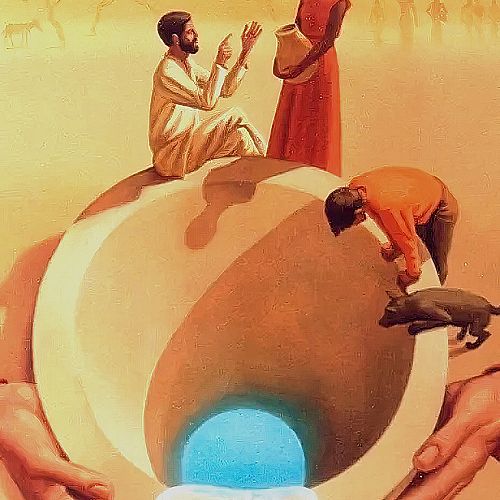
Kathleen Rushton discusses the story in John 4:4-45 of the Samaritan woman meeting Jesus at the well.
Visit this article
Kathleen Rushton writes that Matthew 5:1-48 describes the way Jesus acted in proclaiming God’s reign.
Visit this article
Kathleen Rushton highlights the political context in Matthew 2:13-23 when Joseph and family fled to safety and the scriptural imperative to welcome refugees and migrants.
Visit this article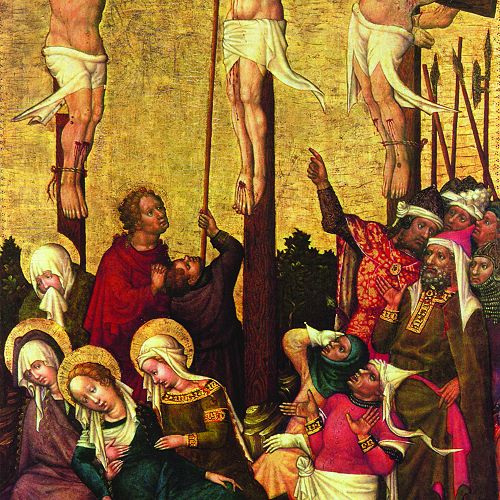
Kathleen Rushton connects Jesus’s announcement of his ministry at the beginning of Luke’s Gospel with his last words before he died in Luke 23:35-42.
Visit this article
In her commentary on Luke 18:1-8 Kathleen Rushton presents the widow as deliberately resisting injustice which challenges interpretations of this parable as an exhortation to prayer.
Visit this article
In her discussion of The Parable of the Unjust Steward in Luke 16:1-13 Kathleen Rushton says that we are to see ourselves as integrally related in love within creation.
Visit this article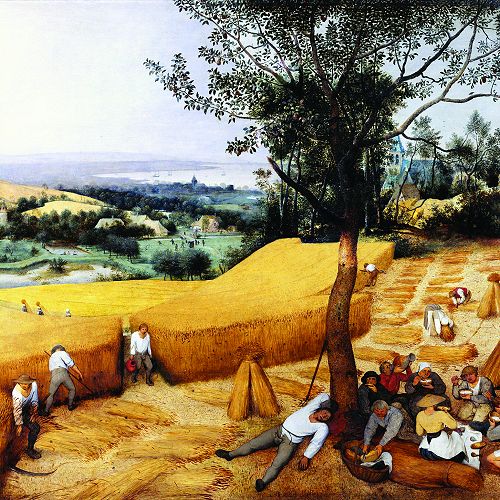
Kathleen Rushton discusses the slave parables in Luke 12:32-48.
Visit this article
KATHLEEN RUSHTON explains how the Martha and Mary story in Luke 10:38-42 highlights the necessity of ministry and prayer for discipleship.
Visit this article
Kathleen Rushton offers insights from Luke 9:51-62 for our journeying in discipleship.
Visit this article
Kathleen Rushton uses the story of the Good Shepherd in John 10:22-30 to discuss how we recognise God's voice in our daily lives.
Visit this article

KATHLEEN RUSHTON compares the transfiguration of Jesus in Luke 9:28-36 with Paul’s transformation in Acts 9.
Visit this article
Kathleen Rushton highlights some significant aspects of Jesus's Sermon on the Plain in Luke 6:17-26.
Visit this article
Kathleen Rushton draws attention to how many of the characters set out on a journey in response to news they hear in the birth stories of Jesus in Matthew 2:1-12 and Luke 1:39-44; 2:1-52.
Visit this article
Kathleen Rushton explains that in the apocalyptic chapter, Mark 13, Jesus is warning disciples to look for the signs that are announcing the endings of old ways and the beginnings of new.
Visit this article
Kathleen Rushton writes that the story of Bartimaeus in Mark 10:46-52 can give us insight into living as a people on the way.
Visit this article
In her explanation of Mark 8:27-9:1 Kathleen Rushton highlights the significance for Christians of understanding suffering, death and resurrection for discipleship.
Visit this article
Kathleen Rushton discusses how Jesus uses the imagery of bread and the grapevine in John 6:35-51 and 15:1-5 to highlight God's gifts — of Jesus and creation.
Visit this article
Kathleen Rushton highlights aspects of John 6 as a guide for our contextualising the Gospel in our lives and world.
Visit this article
Kathleen Rushton discusses the polarity of the biblical idea of land and the reality of life in the “Holy Land” for Palestinians today.
Visit this article
Kathleen Rushton discusses how John 17:6-19 can challenge and support our commitment to justice in the world.
Visit this article
Kathleen Rushton discusses Mark's story of the resurrection of Jesus in Mark 16:1-8.
Visit this article
Kathleen Rushton notes that the prophets spoke out against injustice and offered alternative visions of life for their communities. She describes this prophetic imagination in the crucifixion of Jesus in Mark 14:1—15:47.
Visit this article
Kathleen Rushton explains the significance of the story of Jesus's baptism and testing in Mark 1:9-13.
Visit this article
Kathleen Rushton describes Mary and Joseph's encounter with the prophets in Luke 2:22-40.
Visit this article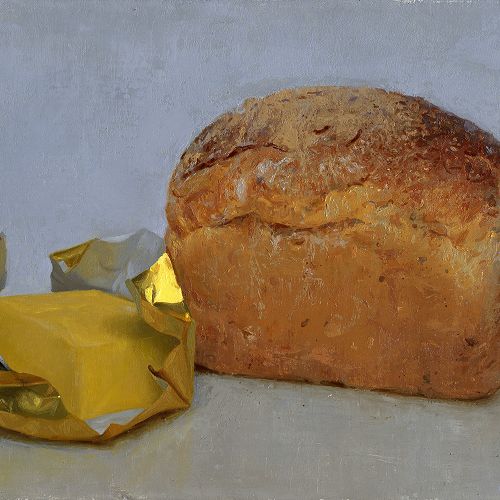
Kathleen Rushton discusses mercy in Matthew 25:31-46.
Visit this article
In her discussion of Matthew 23:34-36 Kathleen Rushton suggests COVID-19 is inviting us to live the commandments more fully.
Visit this article
Kathleen Rushton sets out the implications of Jesus's desire to build the church in Matthew 16:13-20.
Visit this article
Kathleen Rushton discusses the parable of the sower in Matthew 13:1-23.
Visit this article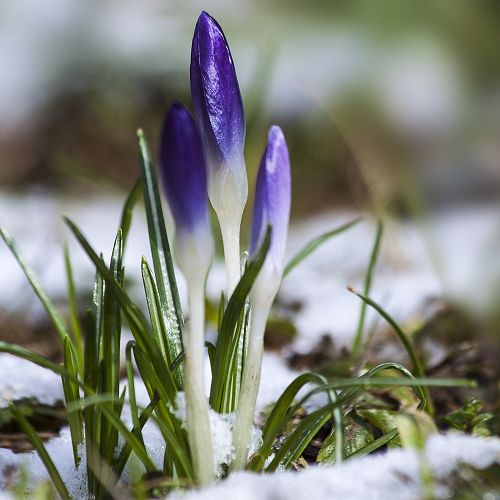
Kathleen Rushton interprets Matthew 10:26-42 in light of our call to relationship at this time.
Visit this article
Kathleen Rushton offers insights into the Gospel reading for Sunday 3 May.
Visit this article
Kathleen Rushton reflects on Jesus’s farewell address in John 14:1-21 in light our challenges in this time of COVID-19.
Visit this article
Kathleen Rushton reflects on the Johannine story of the women and other disciples discovering the Risen Christ.
Visit this article
Kathleen Rushton discusses Matthew 21:1-11, the Gospel reading for Palm Sunday, and how we might celebrate in our bubbles.
Visit this article
Kathleen Rushton explores the story of the risen Jesus breathing the Spirit on the disciples in John 20:19-31 and invites us to reflect on participating in God’s creation.
Visit this article
Kathleen Rushton interprets John 9:1-41 and suggests how this story of the man born blind can influence our lives.
Visit this article
This Gospel reading is for the Fourth Sunday of Lent.
Visit this article
Kathleen Rushton gives insight into the community life Jesus describes in Matthew 5:13-37.
Visit this article
Kathleen Rushton explains how our usual image of the birth of Jesus is different from what we find in Luke 2:1–20.
Visit this article
Kathleen Rushton introduces the apocalyptic writing in Luke 21:5-19 and suggests how it can help us think about and act on the crises of our times.
Visit this article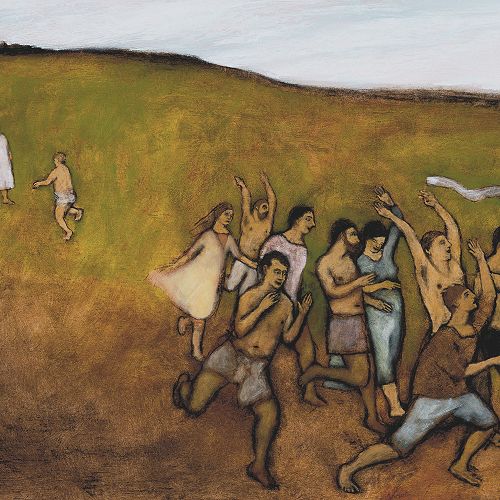
Kathleen Rushton reflects on the story of Jesus healing ten men with leprosy in Luke 17:11-19.
Visit this article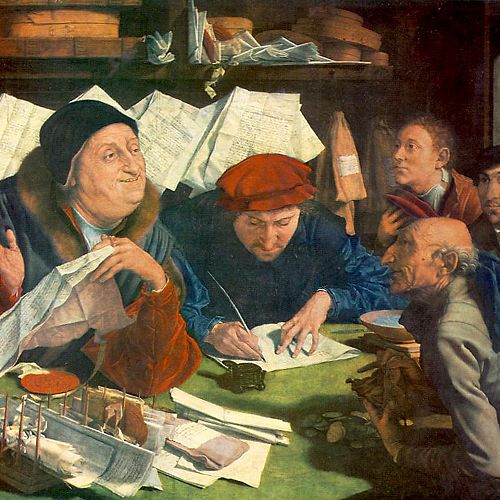
Kathleen Rushton explores the parable of the unjust manager in Luke 16:1-13.
Visit this article
Kathleen Rushton tells how the parable of the serving master can influence our responses to injustices in our world.
Visit this article
Kathleen Rushton points to the radical challenge of the parable of the Good Samaritan Luke 10:25–37 for Jesus's first listeners and for us today.
Visit this article
Kathleen Rushton explains how Jesus sends the Spirit to reannounce truths we may not have had the insight, knowledge or understanding to hear before now.
Visit this article
Kathleen Rushton traces Jesus's words and actions in John 13:31-35 showing him bringing a new unity among people through love.
Visit this article
Kathleen Rushton explains John's version of Jesus's death as his handing over the Spirit at the heart of the universe to all beloved disciples.
Visit this article
Kathleen Rushton's reading of Luke 9:28-36 highlights the commitment that Jesus, and all disciples, give to under-standing God's mission in the world.
Visit this article
Kathleen Rushton interprets Jesus’s teaching on the beatitudes as told in Luke 6:17-49.
Visit this article
Kathleen Rushton draws attention to how the story of Jesus’s birth in Luke 2:1-20 challenges our domesticated Christmas images and ideas.
Visit this article
Kathleen Rushton interprets Jesus’s sermon in Mark 13 uncovering the symbolic language and urging us to stay awake in our world
Visit this article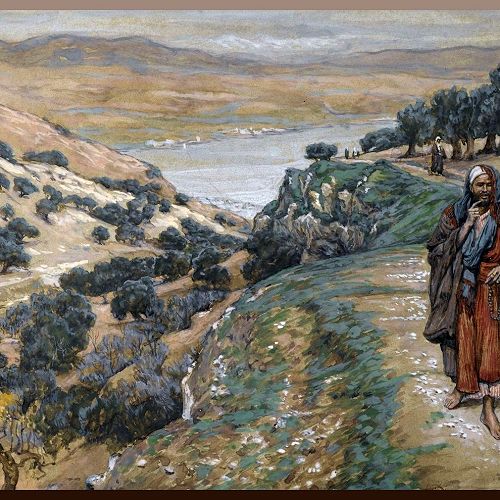
Kathleen Rushton, interpreting Mark 10:17-31, highlights how greed works against discipleship of Jesus.
Visit this article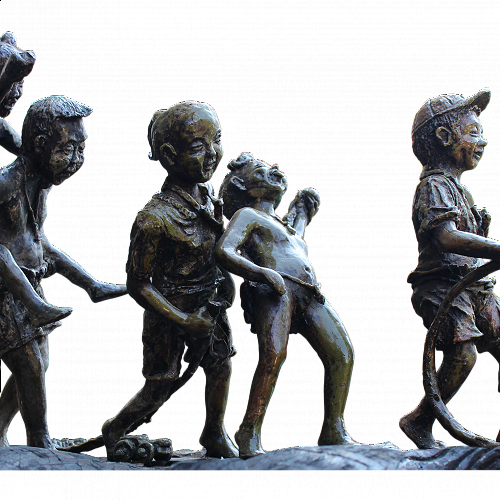
Kathleen Rushton shows in Mark 9:30–37 that childlikeness, not childishness, is a quality of discipleship.
Visit this article
Kathleen Rushton explains that in John 6:24-69 being a disciple means committing to believing into Jesus and in God’s mission.
Visit this article
Kathleen Rushton points to significant aspects of John 6:1-21 that link the feeding story with the reason for Jesus’s ministry and our own living.
Visit this article
Kathleen Rushton interprets two parables in Mark 4:26-34 — the seed that grows by itself and the mustard seed.
Visit this article
Kathleen Rushton discusses how the Pentecost gospel readings, John 16:4-15; 20:19-23, highlight the Holy Spirit as breathing life into the universe.
Visit this article
KATHLEEN RUSHTON explains how the vine imagery in John 15:1-7 speaks of friendship with Jesus and abiding in God.
Visit this article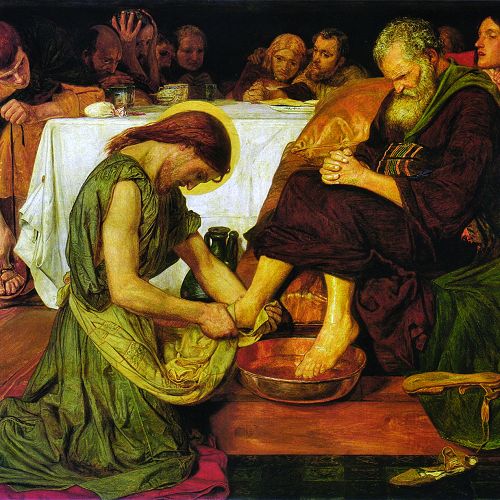
KATHLEEN RUSHTON interprets Jesus’s action in John 13:1-17 as introducing a new ordering of relationships.
Visit this article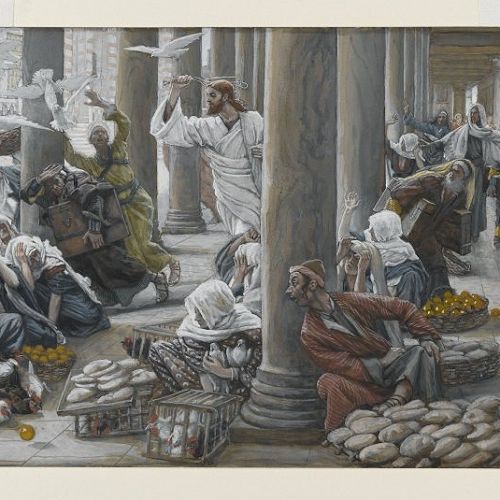
KATHLEEN RUSHTON looks at how John 2:13–25 expands the “Clearing of the Temple” story and considers different understandings of the dwelling place of God.
Visit this article
KATHLEEN RUSHSTON explains the difference between John the Baptist in John’s Gospel from the other Gospels and the message he calls us to understand.
Visit this article
KATHLEEN RUSHTON shows how the righteous described in the parable of Matthew 25:31–46 are imitators of Jesus and in solidarity with the whole Earth community.
Visit this article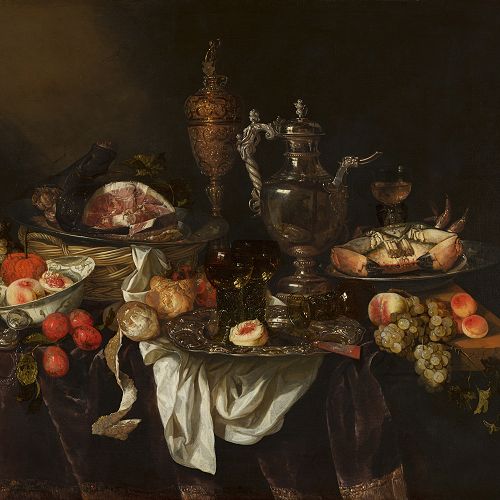
KATHLEEN RUSHTON grapples with the Parable of the Wedding Feast in Matthew 22:1-14 comparing the willingness of guests called to the banquet table.
Visit this article
KATHLEEN RUSHTON uncovers the evil of human slavery in her reading of Matthew 18:21-35 and points out how often it is obscured or mistranslated then and in our own times.
Visit this article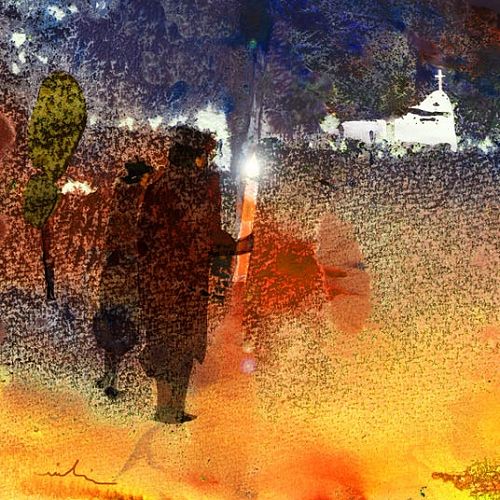
KATHLEEN RUSHTON explains the use of the lectionaries and interprets what is involved in following Jesus in Matthew 16:21-28.
Visit this article
In her interpretation of the parable of the baker woman KATHLEEN RUSHTON alerts us to the twists hidden in Matthew’s parables 13:1-52.
Visit this article
KATHLEEN RUSHTON explains how the meanings of “the world” in John 3:16–18 are related to our involvement in good works.
Visit this article
In her reading of John 14 KATHLEEN RUSHTON points to the climax of the passion as the giving of the Spirit.
Visit this article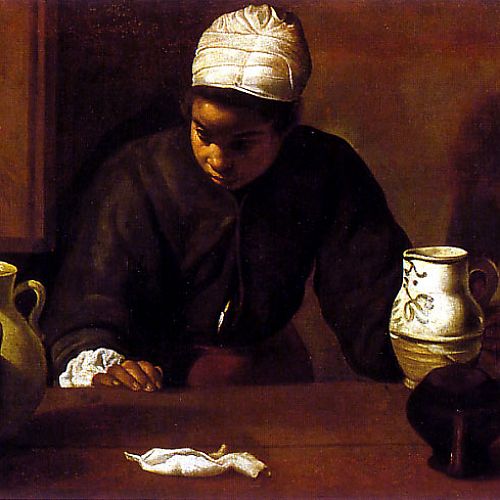
KATHLEEN RUSHTON uses two artworks in her interpretation of the Emmaus Story in Luke 24:13-35.
Visit this article
KATHLEEN RUSHTON interprets John 9:1-41 showing how the man born blind came to believe in Jesus.
Visit this article
In her interpretation of Matthew 5:38–48 KATHLEEN RUSHTON shows how Jesus calls disciples to engage in non-violent resistance of evil.
Visit this article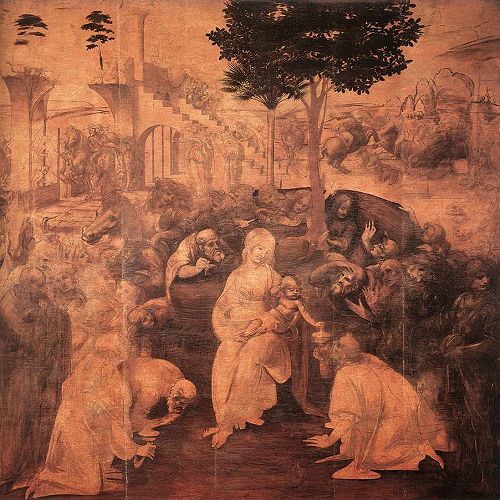
KATHLEEN RUSHTON interprets Matthew 2:1-12 reflecting on the Magi’s visit to the newly-born Jesus in Bethlehem.
Visit this article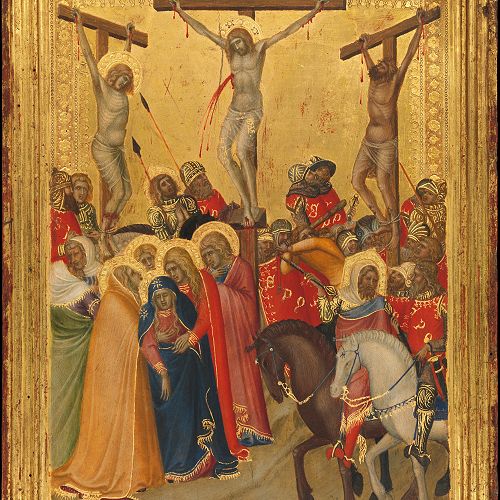
KATHLEEN RUSHTON reflects on the brief conversation between two dying men, Jesus and his companion, in Luke 23:35-43.
Visit this article
KATHLEEN RUSHTON writes that by misjudging Zaccheus in Luke 19:1– 10 we miss his vision for a better community.
Visit this article
Kathleen Rushton examines three parables of the lost in Luke 15:1–32 showing what they reveal about relationships with God and one another.
Visit this article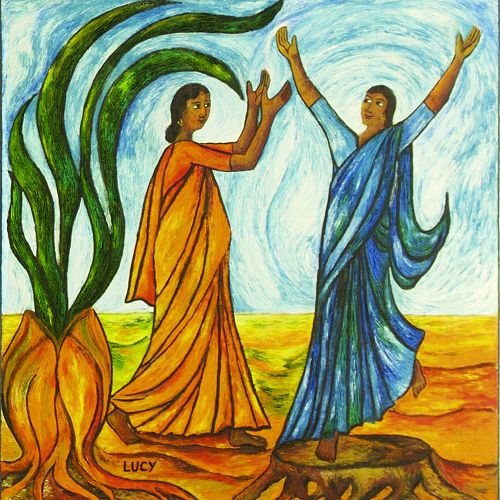
Kathleen Rushton situates the visit of Mary to Elizabeth, Luke 1:39–56, within the story of biblical foremothers and points to the similarities and differences of their relationships.
Visit this article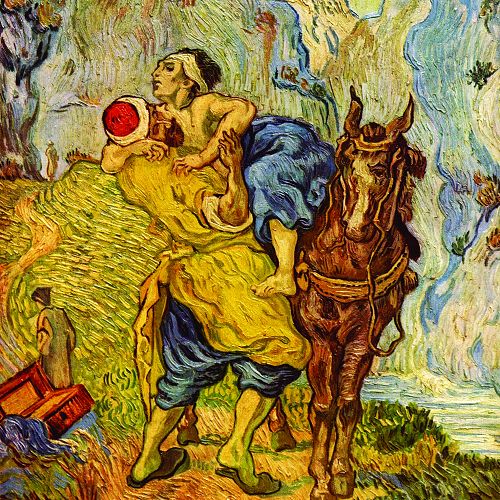
Kathleen Rushton provides new insights into the parable of the wounded man in Luke 10:25-37.
Visit this article
Kathleen Rushton reveals that the woman who anoints Jesus’ head in Simon the Pharisee’s house in Luke 7:36-8:3 is a different woman from Mary Magdalene or Mary of Bethany, with whom tradition has confused her.
Visit this article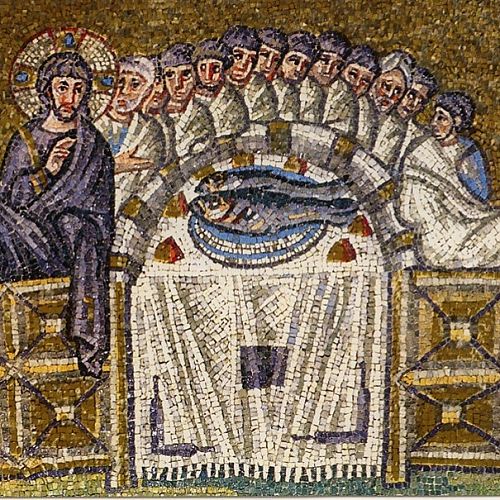
Kathleen Rushton shows in John 16 how a new way of telling the story of Jesus grew out of the Johannine community’s experience of being Christian.
Visit this article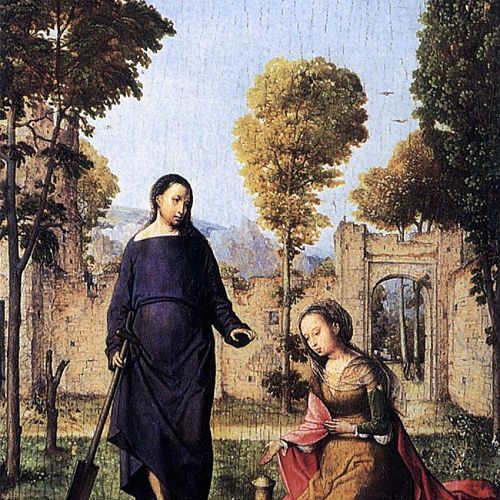
Kathleen Rushton traces the themes of creating and re-creating in John 20:1–9 and highlights the resurrected Jesus as completing the work of the Divine Gardener.
Visit this article

In her interpretation of Luke 4:1-13 Kathleen Rushton discusses the biblical character diabolos and the temptations Jesus faced to abuse power and derail his ministry.
Visit this article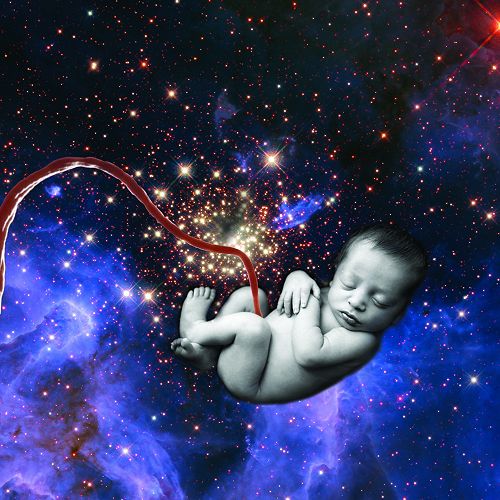
Kathleen Rushton explores the meaning of John 1:1-18 as a Christmas reading.
Visit this article
Kathleen Rushton shows how landscape plays an important role in Jesus' understanding of his part in God's mission.
Visit this article
Kathleen Rushton explains how the evolutionary process of death and resurrection seen in soil and wheat reveal the gift-giving God.
Visit this article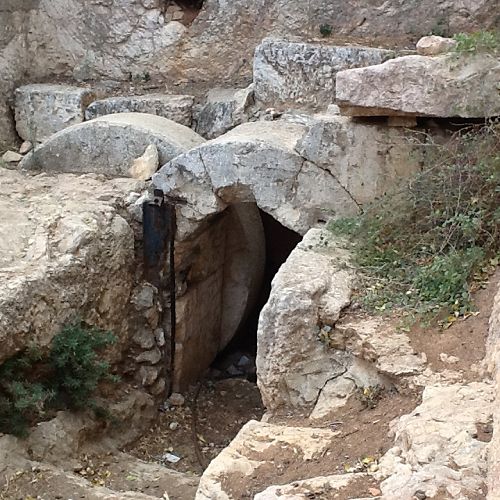
Kathleen Rushton's interpretation of the section in John 20 reveals resurrection as a living in a new time or re-creation.
Visit this article
Kathleen Rushton shows how the Sons of Zebedee in Mark 10:35-45 misunderstood Jesus’ vision of radical discipleship which draws us all into relationship with God, Earth and one another.
Visit this article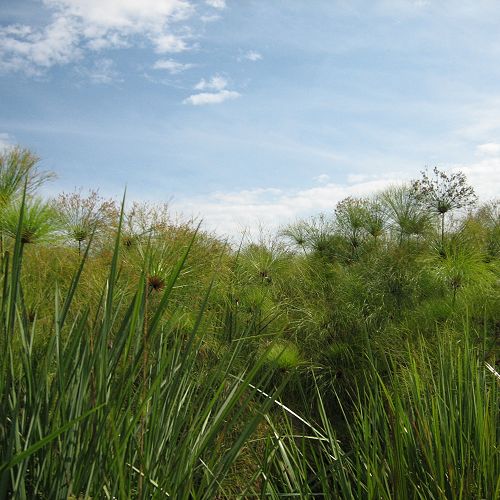
In her interpretation of John 18:33b-37 Kathleen Rushton contrasts Jesus and Pilate as images of kingly power and truthful relationships.
Visit this article
Jesus' challenge" "If any want to become my followers, let them deny themselves and take up their cross and follow me," (Mk 8:34) is not to glorify suffering. In her interpretation of Mark 8: 27-35 Kathleen Rushton suggests that our relationships in creation will enable us to respond to suffering.
Visit this article
Kathleen Rushton invites us to sense and imagine the interconnections of place, human and divine in her interpretation of John 6:41-51, 60-69.
Visit this article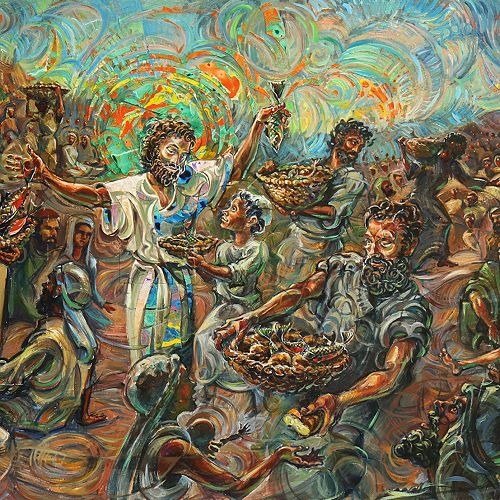
Kathleen Rushton reveals the deep scriptural resonances that the Johannine community uses to describe Jesus as bread of life.
Visit this article
Kathleen Rushton explores two parables of the reign of God in Mark 4:26-34.
Visit this article
Kathleen Rushton traces the images of water and light in the Johannine Pentecost readings - John 7:37-39 and John 15:26-27; 16:12-15 or 20:19-23 - as symbols of the pouring of the Spirit.
Visit this article